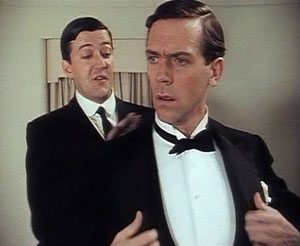27 Interesting Facts about Words
Fun facts about words and the English language
The stuff of literature is, of course, words. As Samuel Taylor Coleridge observed, ‘Prose = words in their best order; – poetry = the best words in the best order.’
Read more here.
10 Rare But Useful Words Everyone Should Know
Is there a word for that? Here are ten of the best useful rare words in the English language
Ever caught yourself thinking, ‘There should be a word for that. Is there a word for that?’ We’re here to help. In this new post, we’ve gathered up ten useful words which should be better known, but aren’t. Many of them, of course, have literary origins or histories, which we’ll mention and discuss as we go.
Read more here.
10 Great Words Coined by P. G. Wodehouse
P. G. Wodehouse invented some fantastically expressive words. He is widely regarded as a master of the English language – even being compared to Shakespeare – and some of his coinages have been honoured with an entry in the Oxford English Dictionary.
Read more here.
Ten words not found in English (sort of)
I just read this article on the Local. It was quite interesting, despite the snarky tone that I’m more used to from the Guardian’s site. Actually, I never thought about most of these words (and ‘vabba’ is relatively new). I won’t go into the pronunciation (but if you’re curious, comment and I’ll try to explain).
I’ll add ‘lagom’ – a sort of “Goldilocks” word, meaning ‘just right’. ‘Duktig’ reminds me of a word in LOTR (the book) – doughty. I’m sure they have the same base, even though doughty can’t be used very often in English-speaking countries today.
For those of you who don’t like The Local’s site, these are the words:
Orka (have the strength to, feel up to)
Harkla (clearing one’s throat)
Hinna (have time to, or ‘catch’ as in ‘I managed to catch the bus’ – in the latter case with the addition ‘med’, in this case meaning ‘to’ but normally it means something else)
Blunda (closing one’s eyes/to close one’s eyes or close your eyes!)
Mysa (snuggle/cuddle, but also enjoying oneself)
Vabba (this simply means taking a paid day off to take care of one’s sick child, it used to be an acronym then turned into a verb)
Duktig (skillful, good at etc, often used when referring to child, but also as a polite remark ‘vad duktig du är’ – ‘oh, you’re good’ (at something or other)
Jobbig (tiresome – actually I think that pretty much covers it, so it’s a bad example)
Gubbe/Gumma (old man/old woman, can be used as a derogatory term, but also as a term of endearment meaning little ‘old man’ or little ‘old woman’ when you use it about a child or dog etc, some people mainly use it as a colloquial term for husband/wife (“hubby” etc)
Also:
Specific words for maternal grandmother (mormor eg ‘mothermother’), maternal grandfather (morfar eg ‘motherfather’), paternal grandmother (farmor eg ‘fathermother’) and finally paternal grandfather (farfar eg ‘fatherfather’). As they point out in the article, grandchild is called barnbarn – eg ‘childchild’ as in (my) child’s child. You can also say daughter’s daughter ‘dotterdotter’, daughter’s son ‘dotterson’, son’s daughter and son’s son ‘sondotter and sonson’. It may look funny, but I think it makes sense.

